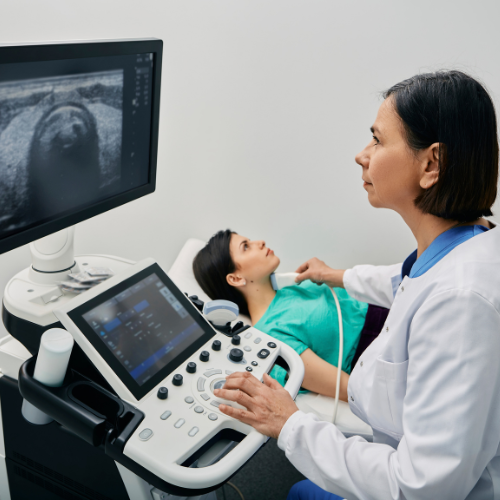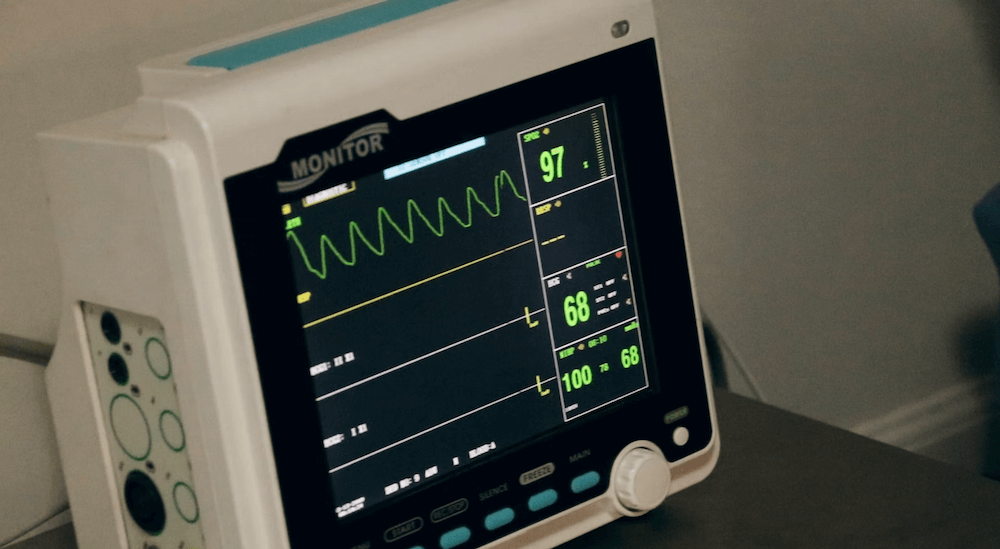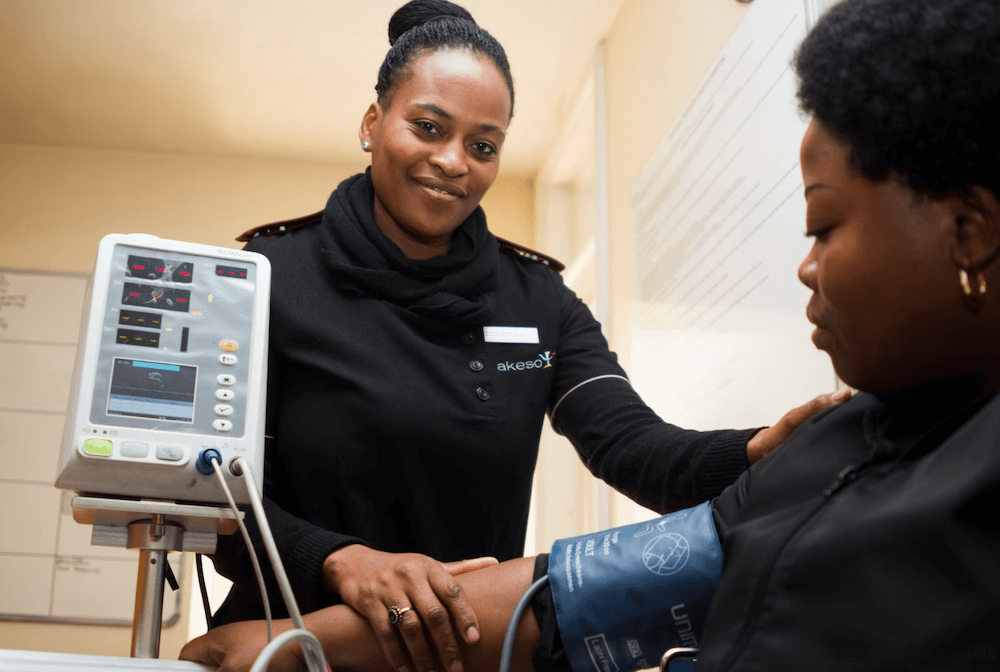Collin College - Online

Classes from Collin - Online
Online Phlebotomy Classes

Collin College Phlebotomy Technician Program
Unlock a vital role in healthcare with Collin College's comprehensive Phlebotomy Technician program. This program provides hands-on, expert-guided training in essential blood collection techniques, safety protocols, and prepares you for immediate employment and certification. Benefit from practical experience in a supportive learning environment, ensuring you gain the confidence and skills needed to excel in diverse healthcare settings and contribute meaningfully to patient care from day one. Collin College, as the sole public college in Collin County, offers a uniquely accessible and high-quality educational pathway.
Program Details:
- Cost: Approximately $1,044
- Duration: 80 contact hours
- Schedule: Delivered in-person with hands-on clinical experience.
- Prerequisites: Completion of the Health Professions application, proof of personal health insurance, departmental permit for clinical courses. A virtual interview will be required starting Spring 2026.
- Accreditations: Offers an Institutional Credential Leading to Licensure or Certification (ICLC) and a Level 1 Certificate. Designed to prepare students for certification and licensure.
- Career Outcomes: Prepares students for certification and employment in healthcare settings.
Online HVAC Classes

The need for qualified heating, ventilation, air conditioning (HVAC) technicians is never going away. Collin College can teach you what it takes to work in the residential HVAC industry installing and servicing gas and electric furnaces and heat pump systems.
You will learn how to work safely and responsibly within Environmental Protection Agency guidelines and standards that apply to the HVAC industry, and identify and use HVAC equipment, components and tools, while understanding their functions within the industry. You will also learn common mechanical, electrical and electronic components such as compressors, switches, thermostats, motors and fans. You will even be able to practice all of the techniques you learn with heat pumps, heating units, a/c units, refrigeration units and more with hands-on instruction in Collin College facilities.
If your program requires a criminal background check, your placement in a required clinical site, cooperative, practicum, internship, and/or licensure/certification opportunity may be impacted. If you have any questions or concerns, please contact your program director and check with your licensing/certifying entity, if any, to determine your status.
Students planning to transfer to a college or university should check with the Collin College academic advisors. Also check the degree requirement of the intended transfer college prior to beginning this program to verify course degree applicability.
Hybrid Certified Nursing Assistant Classes

Collin College's Health Professions curriculum provides you with the training and knowledge you need for a rewarding career as a Certified Nurse Aide (CNA), Electrocardiography (EKG) Technician, Patient Care Technician (PCT), Emergency Medical Technician (EMT) or Phlebotomy Technician (PHLEB). The five career tracks allow you to choose the specialization that best fits your career goals. Each track offers in-depth education with hands-on experience, thanks to experienced faculty that have worked in the healthcare field and valuable clinical partnerships with local hospitals, facilities, and clinics.
The variety of options in Health Professions also allows you to build your knowledge and skills as you progress through the different levels of educational awards. You can earn an Occupational Skills Award (OSA) and a Level 1 Certificates on your way to an Associate of Applied Science in Health Professions, providing you with the chance to work in your field of interest as you continue your education.
If your program requires a criminal background check, your placement in a required clinical site, cooperative, practicum, internship, and/or licensure/certification opportunity may be impacted. If you have any questions or concerns, please contact your Program Director and check with your licensing/certifying entity, if any, to determine your status.
The curriculum contains both transfer and workforce courses. The workforce courses are mainly offered at the Technical Campus and the Wylie Campus. For additional information, please contact the Health Professions Director at 214-491-6253.
Diagnostic Medical Sonography - General Track, AAS

Diagnostic imaging is one of the most commonly used technologies in the medical profession. With a degree in diagnostic medical sonography from Collin College, you can be part of a team that helps identify medical issues early enough to make a real difference in people's lives.
Collin College's Diagnostic Medical Sonography program is designed to prepare you to become a registered sonographer. Through our rigorous integrated didactic and clinical program, students graduate with the skills and knowledge required to be competent in sonography.
Nursing (RN), AAS

A career in nursing will make a difference in your own life and the lives of others. Pursuing your nursing degree at Collin College is a great way to start.
Collin College's Associate Degree Nursing (ADN) program prepares students for a career as a professional registered nurse in this quickly-growing field with state-of-the-art facilities and educators who have years of practical experience working in health care. Collin College has been recognized as a Center of Excellence in Nursing Education by the National League for Nursing (NLN) since 2011, one of only a handful of community colleges in the nation to earn that honor.
The concept-based nursing curriculum is designed for deep learning so that you develop higher-level clinical judgment. The curriculum divides nursing concepts into two categories - health care concepts and professional nursing concepts - which are learned in the classroom and then applied in practical settings like the health sciences simulation labs in the Cary A. Israel Health Sciences Center, as well as in local health care facilities where students complete clinical rotations.
The nursing curriculum is approved by the Texas Board of Nursing (Texas BON) and accredited by the Accreditation Commission for Education in Nursing (ACEN). Upon graduation, Collin College's ADN program students are ready to apply to the Texas BON for licensure as a registered nurse (RN) through the NCLEX-RN examination.
The college also offers a bridge program for LVNs, allowing for faster degree completion to begin your career as a professional registered nurse earlier.
LVN to RN Bridge Program, AAS

A career in nursing will make a difference in your own life and the lives of others. Pursuing your nursing degree at Collin College is a great way to start.
Collin College's Associate Degree Nursing (ADN) program prepares students for a career as a professional registered nurse in this quickly-growing field with state-of-the-art facilities and educators who have years of practical experience working in health care. Collin College has been recognized as a Center of Excellence in Nursing Education by the National League for Nursing (NLN) since 2011, one of only a handful of community colleges in the nation to earn that honor.
The concept-based nursing curriculum is designed for deep learning so that you develop higher-level clinical judgment. The curriculum divides nursing concepts into two categories - health care concepts and professional nursing concepts - which are learned in the classroom and then applied in practical settings like the health sciences simulation labs in the Cary A. Israel Health Sciences Center, as well as in local health care facilities where students complete clinical rotations.
The nursing curriculum is approved by the Texas Board of Nursing (Texas BON) and accredited by the Accreditation Commission for Education in Nursing (ACEN). Upon graduation, Collin College's ADN program students are ready to apply to the Texas BON for licensure as a registered nurse (RN) through the NCLEX-RN examination.
The college also offers a bridge program for LVNs, allowing for faster degree completion to begin your career as a professional registered nurse earlier.
Online Paralegal Classes

This program trains students to become paralegals and legal assistants and helps them prepare for a national certification examination. The program does not qualify a graduate to take a state bar exam, represent clients in court, or give legal advice. Paralegals may not provide legal services directly to the public, except as permitted by law. Admission to the Paralegal/Legal Assistant program is open to all students. Students with a prior degree may be eligible for admission to the Level II Paralegal General Certificate program. For more information about eligibility, please see the certificate pre-entrance requirements.
Online Construction Classes

Build a better tomorrow and be a leader in one of the fastest growing industries in Collin County with a degree in Construction Management from Collin College. North Texas is home to many of the fastest-growing cities in the United States and the need for skilled construction managers is more important than ever.
Construction managers use a blend of skills sets from the fields of architecture, business, and engineering to manage residential and commercial construction projects. Construction managers oversee the planning, design and construction of a project from beginning to end, ensuring that projects are completed safely, on time, and on budget.
Collin College's Construction Management program prepares students to work in a wide variety of management/supervisory roles, both in residential and commercial areas of construction. Key topics include scheduling, budgeting, personnel management, quality assurance, and safety.
Online Emergency Medical Technician Classes

Collin College's Health Professions curriculum provides you with the training and knowledge you need for a rewarding career as a Certified Nurse Aide (CNA), Electrocardiography (EKG) Technician, Patient Care Technician (PCT), Emergency Medical Technician (EMT) or Phlebotomy Technician (PHLEB). The five career tracks allow you to choose the specialization that best fits your career goals. Each track offers in-depth education with hands-on experience, thanks to experienced faculty that have worked in the healthcare field and valuable clinical partnerships with local hospitals, facilities, and clinics.
The variety of options in Health Professions also allows you to build your knowledge and skills as you progress through the different levels of educational awards. You can earn an Occupational Skills Award (OSA) and a Level 1 Certificates on your way to an Associate of Applied Science in Health Professions, providing you with the chance to work in your field of interest as you continue your education.
If your program requires a criminal background check, your placement in a required clinical site, cooperative, practicum, internship, and/or licensure/certification opportunity may be impacted. If you have any questions or concerns, please contact your Program Director and check with your licensing/certifying entity, if any, to determine your status.
Online Electrocardiogram (ECG/EKG) Classes

Collin College's Health Professions curriculum provides you with the training and knowledge you need for a rewarding career as a Certified Nurse Aide (CNA), Electrocardiography (EKG) Technician, Patient Care Technician (PCT), Emergency Medical Technician (EMT) or Phlebotomy Technician (PHLEB). The five career tracks allow you to choose the specialization that best fits your career goals. Each track offers in-depth education with hands-on experience, thanks to experienced faculty that have worked in the healthcare field and valuable clinical partnerships with local hospitals, facilities, and clinics.
The variety of options in Health Professions also allows you to build your knowledge and skills as you progress through the different levels of educational awards. You can earn an Occupational Skills Award (OSA) and a Level 1 Certificates on your way to an Associate of Applied Science in Health Professions, providing you with the chance to work in your field of interest as you continue your education.
If your program requires a criminal background check, your placement in a required clinical site, cooperative, practicum, internship, and/or licensure/certification opportunity may be impacted. If you have any questions or concerns, please contact your Program Director and check with your licensing/certifying entity, if any, to determine your status.
Online Licensed Vocational Nurse (LVN/LPN) license Classes

This is a twelve (12) month program to receive certification in Vocational Nursing at Collin College and then to become eligible to take the NCLEX-PN exam for licensure as a Licensed Vocational Nurse (LVN) by the Texas Board of Nursing. LVNs/LPNs work under the supervision of an RN, physician (MD or DO), nurse practitioner (NP or APRN), dentist or physician's assistant (PA). They can perform basic nursing duties independently and assist RNs and physicians in more complex nursing situations. LVNs/LPNs work in a variety of healthcare settings including many areas of acute care hospitals, skilled nursing facilities/nursing homes, assisted-living facilities, long-term acute care hospitals, rehabilitation hospitals, psychiatric hospitals, substance abuse centers, dialysis centers, schools, clinics, adult and child daycare centers, correctional facilities, doctor offices, surgery centers, hospice and home healthcare among others.
Online Medical Billing and Coding Classes

Students completing the Medical Coding Billing Certificate are better prepared for coding credentialing exams such as AHIMA’s Certified Coding Associate (CCA) exam and the American Academy of Professional Coders (AAPC) Certified Professional Coder (CPC®) exam.
All courses in the Medical Coding Billing Certificate are included in the AAS-HIM Degree. Students completing the Medical Coding Billing Certificate may choose to continue their studies and complete the AAS-HIM Degree and sit for the Registered Health Information Technician (RHIT) credential.
The Medical Coding and Billing Certificate is a 27 credit hour on-line program that will prepare the student for the workforce as a medical coder/biller. The curriculum is based on the American Health Information Management Association's (AHIMA) competencies. Students planning to transfer to a college or university should check with Collin academic advisors. Also, check the degree requirement of the intended transfer college prior to beginning this program to verify course degree applicability.
Online Pharmacy Technician Classes

The Pharmacy Technician Program orients students to the work of various pharmacy settings and the context in which their work is performed. An overview of the pharmacokinetics & pharmacodynamics associated with prescription and OTC medications is provided.
Students are introduced to the profound influence that federal and state laws and regulation have on practice. Commonly encountered ethical dilemmas are explored in this program. Students will perform drug dosage conversions and calculations. The program contains opportunities for hands on labs to allow students to simulate preparing various forms of medications. Upon successful completion of the program, students should have attained the skills to prepare them to take the Pharmacy Technician Certification Exam, if they choose to. Additionally, the Pharmacy Technician program will provide a basic foundation and understanding of pharmaceuticals that any student pursuing higher level education in the Healthcare field may benefit from.
Online Patient Care Technician Classes

Collin College's Health Professions curriculum provides you with the training and knowledge you need for a rewarding career as a Certified Nurse Aide (CNA), Electrocardiography (EKG) Technician, Patient Care Technician (PCT), Emergency Medical Technician (EMT) or Phlebotomy Technician (PHLEB). The five career tracks allow you to choose the specialization that best fits your career goals. Each track offers in-depth education with hands-on experience, thanks to experienced faculty that have worked in the healthcare field and valuable clinical partnerships with local hospitals, facilities, and clinics.
The variety of options in Health Professions also allows you to build your knowledge and skills as you progress through the different levels of educational awards. You can earn an Occupational Skills Award (OSA) and a Level 1 Certificates on your way to an Associate of Applied Science in Health Professions, providing you with the chance to work in your field of interest as you continue your education.
If your program requires a criminal background check, your placement in a required clinical site, cooperative, practicum, internship, and/or licensure/certification opportunity may be impacted. If you have any questions or concerns, please contact your Program Director and check with your licensing/certifying entity, if any, to determine your status.
Online IT Support Classes

Learn to design and develop information systems for the ever-growing world of computers with a degree or certificate in computer systems.
The rapid spread of computers and information technology has created a need for highly trained workers to work in applications, support and/or database development. With Collin College's Computer Systems program, you will learn to design and build computer systems, and to solve problems in this ever-changing and growing field.
The degree program offers tracks in information systems or computer support. Areas of study include business applications, business programming, management skills, database programming, computer applications and technical skills. The degree can provide a broad business background and professional skills needed to succeed in a career in computer information systems.
Computer support specialists troubleshoot and resolve various computer and software issues. They may work in a help-desk environment or provide technical support in an organization's IT department. Professionals might work in a variety of fields, including computer systems, telecommunications, finance, and educational services. Some professionals may be able to work from home, while others travel to clients' homes to provide computer support.
Information systems specialists troubleshoot computer systems and develop safeguards to prevent future problems. These experts design, repair, or administer an organization's computer networks and systems. Coursework in programming, computer applications, and systems analysis and design prepare you for entry-level positions in Information Technology.
Students planning to transfer to a college or university should check with Collin College academic advisors or career coaches. Also check the degree requirement of the intended transfer college prior to beginning this program to verify course degree applicability. If your program requires a criminal background check, your placement in a required clinical site, cooperative, practicum, internship, and/or licensure/certification opportunity may be impacted. If you have any questions or concerns, please contact your program director, and check with your licensing/certifying entity, if any, to determine your status.
Information System Specialist

Learn to design and develop information systems for the ever-growing world of computers with a degree or certificate in computer systems.
The rapid spread of computers and information technology has created a need for highly trained workers to work in applications, support and/or database development. With Collin College's Computer Systems program, you will learn to design and build computer systems, and to solve problems in this ever-changing and growing field.
The degree program offers tracks in information systems or computer support. Areas of study include business applications, business programming, management skills, database programming, computer applications and technical skills. The degree can provide a broad business background and professional skills needed to succeed in a career in computer information systems.
Computer support specialists troubleshoot and resolve various computer and software issues. They may work in a help-desk environment or provide technical support in an organization's IT department. Professionals might work in a variety of fields, including computer systems, telecommunications, finance, and educational services. Some professionals may be able to work from home, while others travel to clients' homes to provide computer support.
Information systems specialists troubleshoot computer systems and develop safeguards to prevent future problems. These experts design, repair, or administer an organization's computer networks and systems. Coursework in programming, computer applications, and systems analysis and design prepare you for entry-level positions in Information Technology.
Students planning to transfer to a college or university should check with Collin College academic advisors or career coaches. Also check the degree requirement of the intended transfer college prior to beginning this program to verify course degree applicability. If your program requires a criminal background check, your placement in a required clinical site, cooperative, practicum, internship, and/or licensure/certification opportunity may be impacted. If you have any questions or concerns, please contact your program director, and check with your licensing/certifying entity, if any, to determine your status.
About school
Collin College
Located in McKinney, TX, Collin College is a higher education institution offering over 200 degrees and certificates, including specialized bachelor's programs. It annually serves over 58,000 credit and continuing education students, emphasizing student and community well-being through skill development, character strengthening, and intellectual challenge. The college partners with business, government, and industry to provide customized workforce development, ensuring students gain valuable skills and contribute to a brighter future.
Highlights:
- Only public college in Collin County
- Over 200 degrees and certificates offered
- Strong partnerships for customized workforce development
- Extensive online student resources and admissions support
In the McKinney, TX area
3452 Spur 399 W, McKinney, TX 75069
